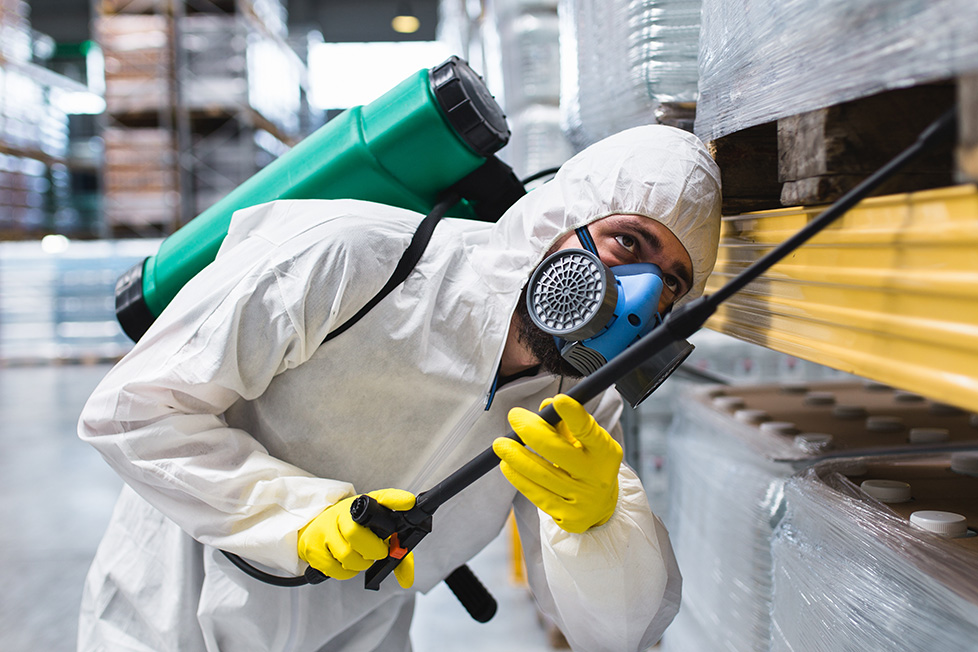Experience professional Pest Control for complete protection and eliminate infestations.
Eco-Friendly Pest Control Approaches for Handling Wild Animals in Urban Locations
Urban areas often locate themselves at the junction of human task and wildlife, leading to distinct challenges in parasite monitoring. These methods not only safeguard the environment yet likewise improve community involvement in wild animals management. As urban populaces continue to grow, recognizing the dynamics of wildlife communications ends up being increasingly crucial.
Recognizing Urban Wild Animals Dynamics
Recognizing Urban Wildlife Characteristics is crucial for establishing effective and eco-friendly parasite control methods. Urban areas are significantly ending up being habitats for numerous wildlife varieties, driven by elements such as environment fragmentation, food accessibility, and human encroachment. Identifying these dynamics permits for a nuanced technique to pest management that lines up with ecological concepts.
Urban wildlife usually includes varieties such as raccoons, squirrels, and birds, which adapt to city settings, finding particular niches in green rooms, parks, and even property areas. Their existence can bring about disputes with human beings, especially when they manipulate personnels for food and shelter. Understanding the behaviors and environmental functions of these types notifies approaches that lessen adverse interactions while advertising biodiversity.
Furthermore, acknowledging the interdependencies within metropolitan ecosystems assists in determining crucial locations for environment conservation and remediation. This understanding adds to the growth of incorporated pest administration (IPM) methods that take into consideration the eco-friendly equilibrium, thereby decreasing reliance on damaging chemicals. By cultivating conjunction in between human beings and city wild animals, cities can develop much healthier settings that profit both homeowners and local ecosystems, leading the way for sustainable urban living.
All-natural Repellents and Deterrents
All-natural repellents and deterrents supply a lasting choice to standard bug control techniques by taking advantage of the power of nature to maintain unwanted species at bay. These eco-friendly solutions generally utilize plant-based active ingredients, crucial oils, and various other normally happening substances that deter parasites without damaging the atmosphere.
One efficient natural repellent is peppermint oil, which is recognized to push back rodents and insects. Its solid fragrance is unpleasant to many parasites, making it a preferred option for urban setups. Likewise, vinegar and citrus peels can work as deterrents, as their solid odors are commonly uninviting to different wildlife.
In addition, diatomaceous planet is a natural powder that can be spread out in areas vulnerable to parasite task, effectively dehydrating and preventing bugs without presenting dangers to non-target varieties. Additionally, garlic sprays and neem oil are acknowledged for their ability to drive away a large variety of bugs, including both bugs and larger wildlife.
Executing these all-natural repellents not only decreases dependence on chemical pesticides but likewise advertises a healthier metropolitan ecological community, fostering a much more well balanced coexistence between people and wild animals. By utilizing these techniques, city areas can efficiently take care of parasite populations while reducing ecological influence.
Habitat Adjustment Methods
Reliable environment modification techniques play a critical role in sustainable insect administration by modifying the setting to make it much less for pest infestations. By comprehending the environmental characteristics of city locations, homeowner can carry out calculated alterations that hinder parasites while advertising biodiversity.
(Mouse Control)One primary method includes preserving correct hygiene. This consists of regular waste removal, securing trash bins, and getting rid of standing water to decrease breeding sites for bugs and rodents. Furthermore, landscape design methods such as choosing native plants can improve environmental balance, offering habitats for useful organisms while reducing resources for insects.
Another crucial strategy is to secure entrance points in structures. Checking and repairing splits in foundations, walls, and home windows can substantially minimize parasite access. Furthermore, developing physical barriers, such as fencings or plant buffers, can hinder wildlife activity into human-inhabited locations.
Integrated Parasite Administration Practices
Structure upon habitat alteration techniques, incorporated pest monitoring (IPM) practices use a holistic technique to controlling bug populaces while reducing ecological impact. IPM integrates numerous techniques, consisting of organic, cultural, mechanical, and chemical controls, to accomplish reliable insect administration.
Organic control involves the introduction of all-natural predators or parasites to minimize parasite populations. Cultural methods, such as plant rotation and sanitation, interrupt pest life process and diminish their habitats - Pest Control. Mechanical controls, like catches and obstacles, provide redirected here immediate remedy for parasite stress without chemical intervention
Chemical controls are utilized as a last hope, concentrating on targeted applications that restrict injury to non-target varieties and the environment. The selection of ecologically pleasant chemicals, when essential, is integral to the IPM framework. Additionally, keeping track of bug populaces and examining possible damages aids educate decision-making, making certain that treatments are timely and efficient.
Community Involvement and Education

(Integrated pest management Port Charlotte)Workshops and informative sessions can furnish citizens with understanding regarding native species, habitat preservation, and reliable safe bug administration methods. Collaboration with schools, neighborhood companies, and government agencies further enhances instructional outreach, making certain that crucial info reaches diverse target markets.
Additionally, community-led efforts, such as neighborhood clean-up days and environment repair projects, not just advertise biodiversity however also reinforce neighborhood ties. Pest control service. By motivating residents to share their experiences and monitorings, neighborhoods can develop targeted approaches that attend to particular neighborhood bug issues
Including comments from residents right into pest monitoring plans makes it possible for a much more receptive and adaptive strategy to wildlife obstacles. Eventually, informed and engaged communities are crucial to achieving long-lasting success in eco-friendly bug control, leading to much healthier urban atmospheres that value both human and ecological demands.

Conclusion
In verdict, eco-friendly insect control approaches deal lasting remedies for managing urban wildlife. By prioritizing habitat adjustment, making use of all-natural repellents, and applying incorporated pest administration methods, areas can foster an unified conjunction with regional animals. Involving homeowners via education and learning boosts recognition and urges liable wild animals interactions. Eventually, these techniques not only safeguard biodiversity but also advertise ecological health and wellness, making sure metropolitan areas remain vibrant ecosystems where human beings and wild animals flourish together.